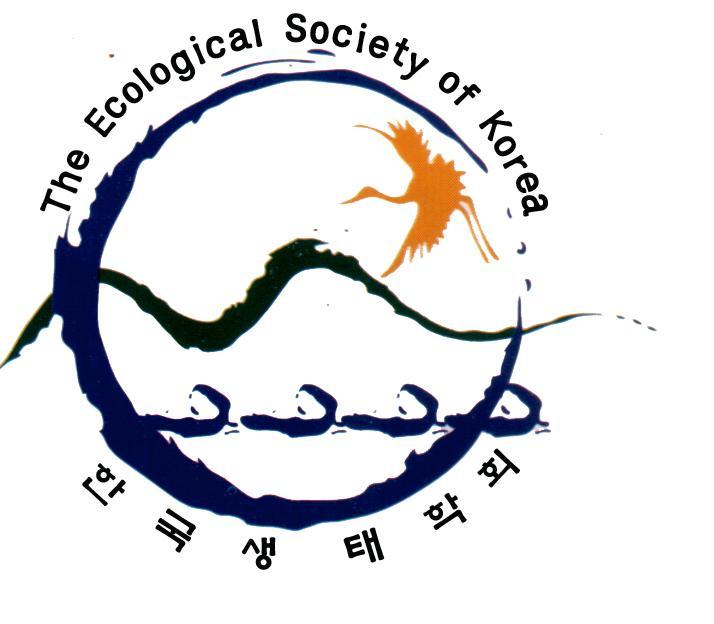- ENGLISH
- P-ISSN2287-8327
- E-ISSN2288-1220
- SCOPUS, KCI
 ISSN : 2287-8327
ISSN : 2287-8327
남산에서의 임형과 토양 환경에 따른 서양등골나물의 분포 양상
Distribution Pattern of Eupatorium rugosum in Various Forest Types and Soils in Mt. Namsan
심규철 (공주대학교)
전영문 (건국대학교)
이호준 (건국대학교)
Abstract
This study was carried out to investigate the relationship of occurrence and distribution of Eupatorium rugosum by forest types and soil characteristics in Mt. Namsan in Seoul, Korea. E. rugosum is designated as a harmful non-indigenous plant in ecosystem by the Natural Environment Conservation Act in Korea. E. rugosum grew along roadside and in valleys with some favorable light conditions. E. rugosum occurred in aggregations under Pinus densiflora and Robinia pseudoacacia communities. And it was sparse in forests of Quercus mongolica and P. koraiensis. The representative herb layer species were Oplismenus undulatifolius, and Parthenocissus tricuspidata in the E. rugosum communities. There was a significantly negative correlation between the coverage of E. rugosum and the coverage of tree layer. However, the result of ANOVA of E. rugosum coverage by dominant species of tree layers did not show a significant difference (p>0.05). The level of soil moisture content, organic content, and pH, was slightly higher in communities with E. rugosum than without, but it was statistically non-significant difference. However, it was found that the coverage of E. rugosum was very significantly negative correlated with the depth of top soil profile (litter and fermentation layer, p<0.05).
- keywords
- Distribution of Eupatorium rugosum, Forest type, Soil characteristics, 서양등골나물의 분포, 임형, 토양 특성
참고문헌
(1996.) . 귀화생물에 의한생태적 영향 조사 . ,
(1995.) . 귀화생물에 의한 생태적 영향 조사 . ,
(1998) . . 서울 남산공원의 식물상과 그 분포. ,
(2003.) 서양등골나물의 생태적 특성 및 환경위해성 평가.. , 건국대학교
남산공원관리사무소. 1993. 남산 제 모습 가꾸기 자연보전사업보고서. 서울특별시,
(.1971.개략토양도.서울.) 식물환경연구소, 농촌진흥청
(1987.남산공원) 의 식생과 토양요인에 관하여. 자연보존 60,
(1999.) . 서울시 생물종 분포변화에 관한 조사연구. , 서울시정개발연구원
1989. 서울시의 식생과 귀화식물의 분포에 관한 연구.중앙대학교 석사학위논문,
임양재. 1978. 한반도 관속식물의 분포에 관한 연구. 식물분류학회지 8,
1987. 남산의 식물상. 자연보존 59,
(1998) .남산자연공원의 식물군락분류와 토양환경. ,
한창변. 1987. 서울 남산의 식생. 중앙대자연과학연구소 논문집 1,
전의식. 1980. 한반도 귀화식물 분포. 한국식물학회지23,
(2002.) 서양등골나물(Ageratina altissima)(L.R. King & H. Robinson) 개체군의 생육특성 및 유전적 구조. ,
L.O. and M.B. McDonald. 1985. Principles of seedscience and Technology. Burgess Publishing Company,
(2002.) Eupatorium rugosum(Asteraceae)flowering as an indicator of edge effect fromclearcutting in mixed-mesophytic forest. Forest Ecol. Manag.155,
(.2003.) Distribution pattern ofwhite snakeroot as an invasive alien plant and restorationstrategy to inhibit its expansion in Seoripool Park,
. 2000. Role of light availability anddispersal in exotic plant invasion along roads and streams inthe H.J. Andrews Experimental Forest,
(1997.) Characteristicsand distribution pattern of Eupatorium rugosum at Mt.Namsan in Seoul. ,
(1995) .The effect of a disturbance corridor on an ecological reserve., Zinc
- 다운로드 수
- 조회수
- 0KCI 피인용수
- 0WOS 피인용수

